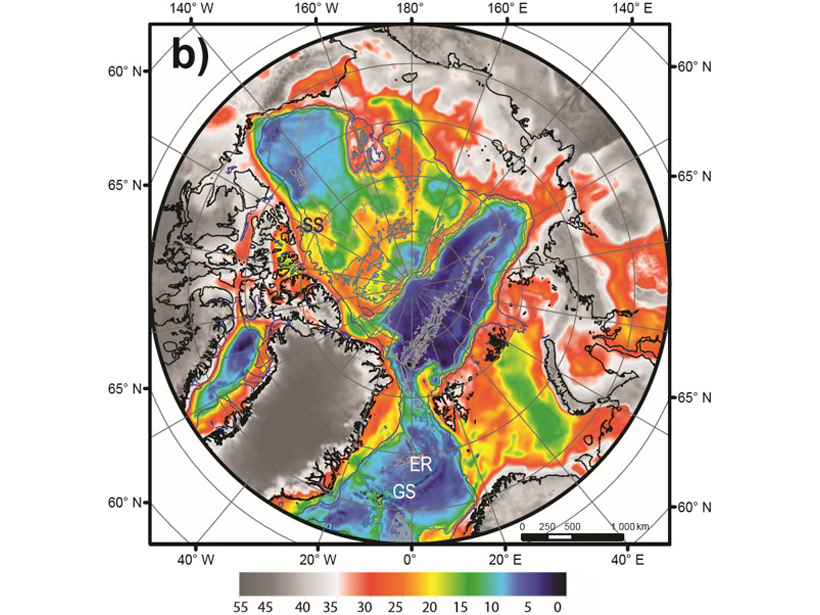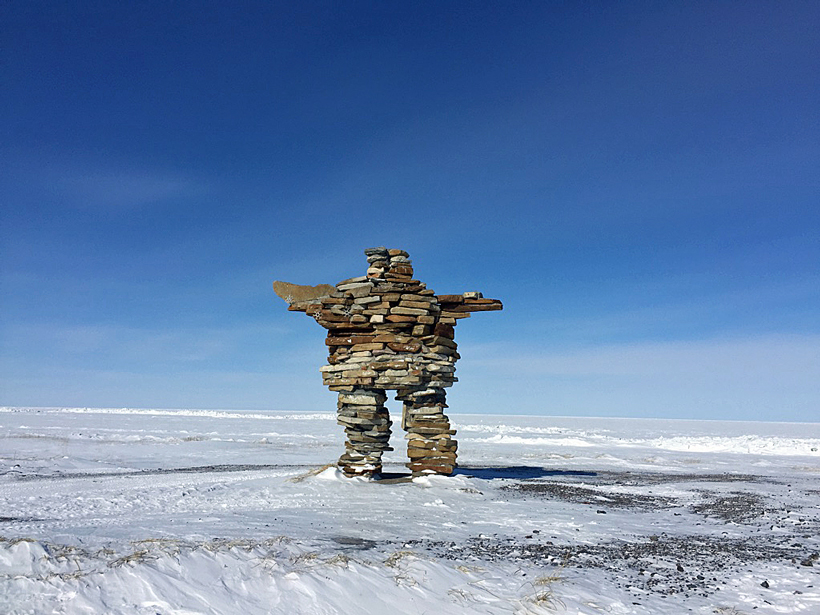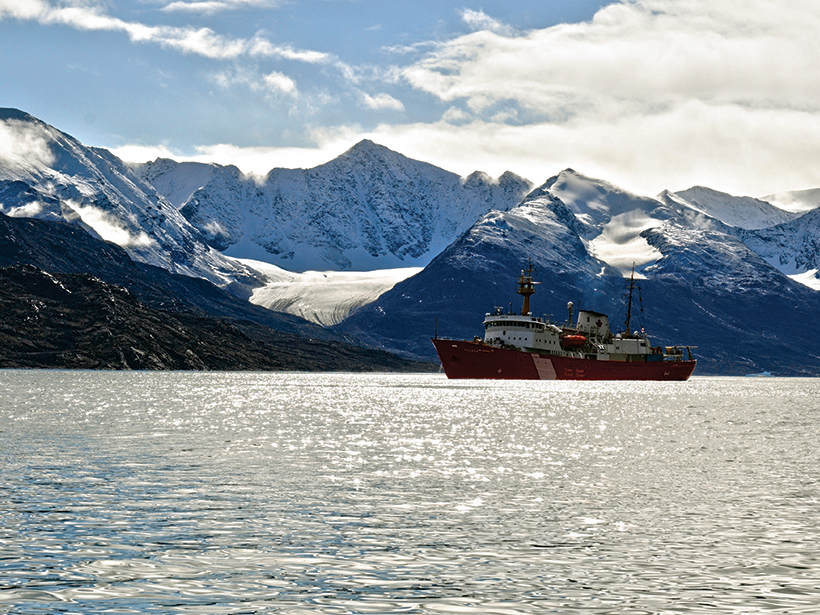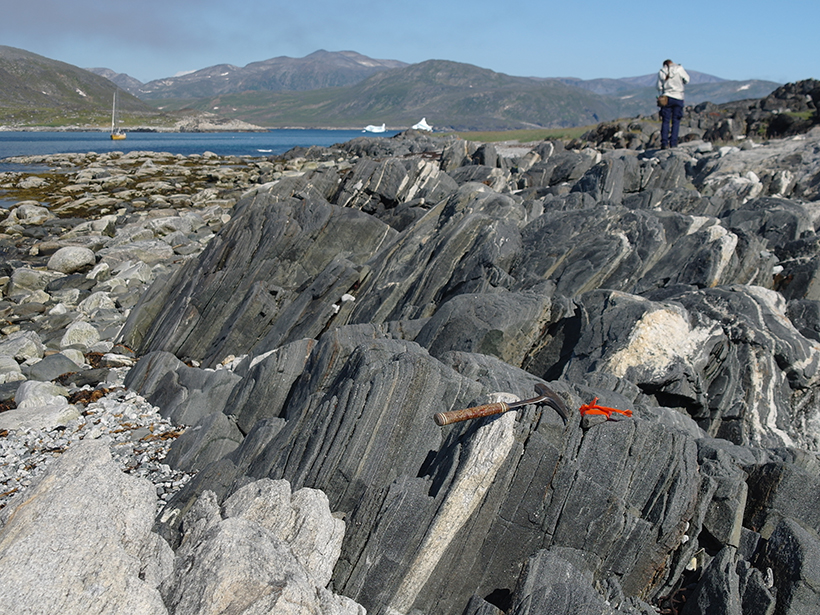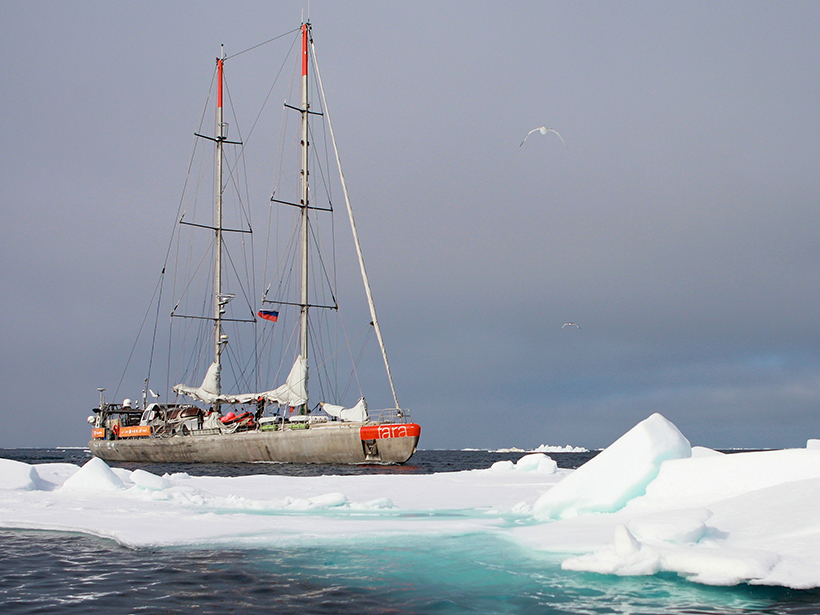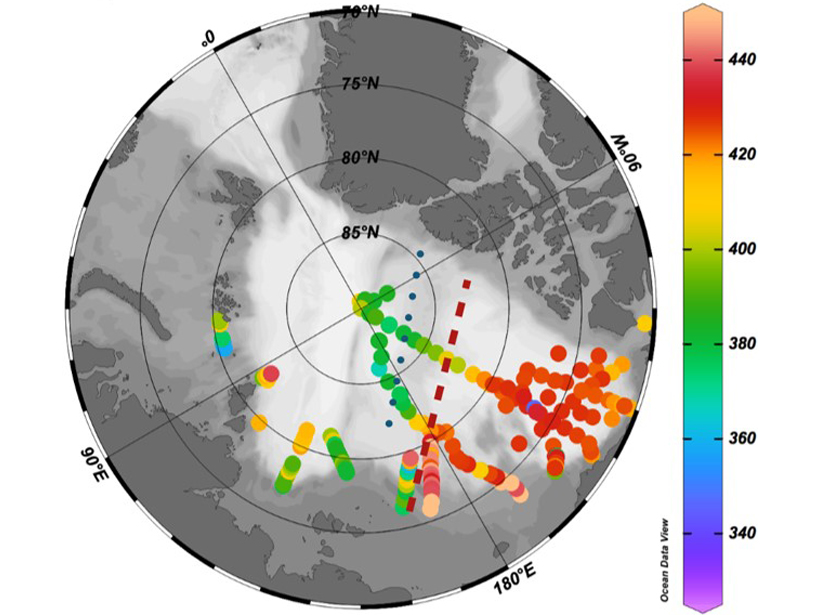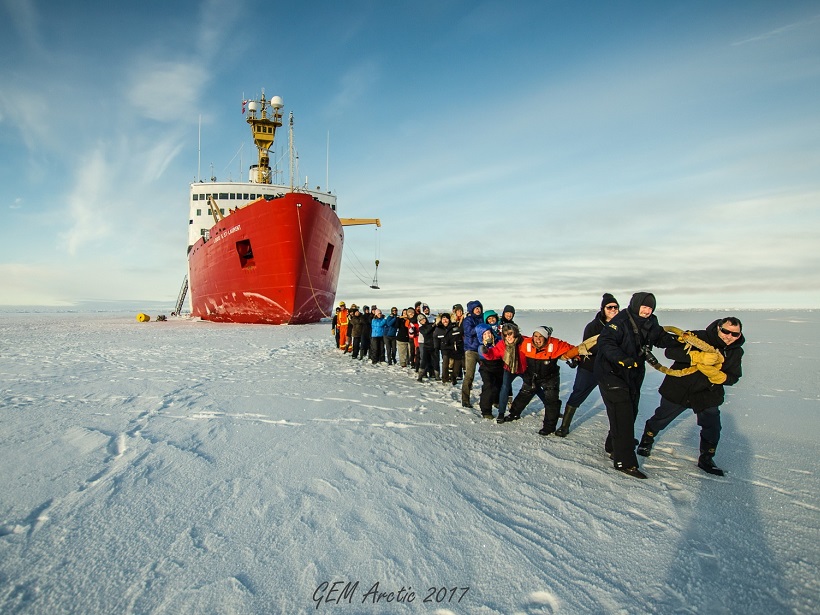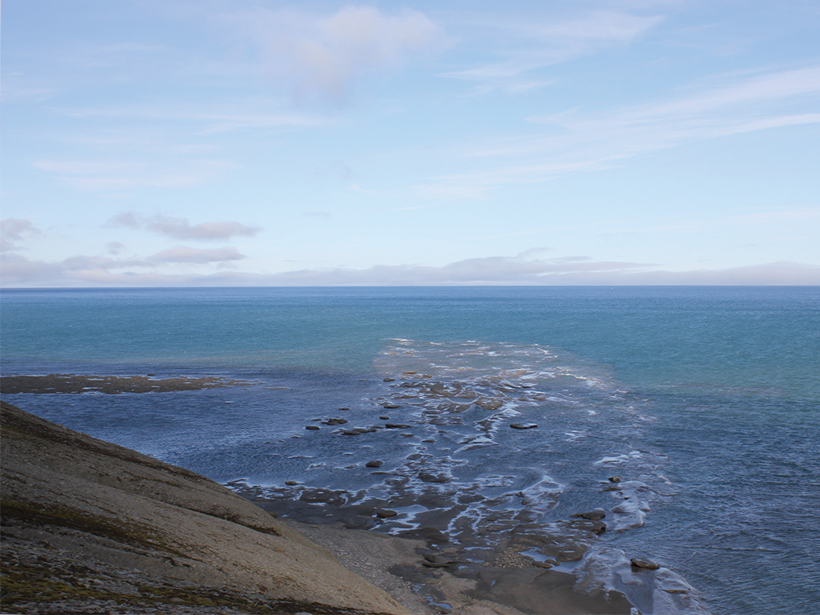Arctic Warming and East Asia Weather Linkage Workshop; Incheon, South Korea, 13 May 2019
Arctic
Revealing the Arctic Crust
A new model, ArcCRUST, reveals with unprecedent resolution the geometry and the thermal state of the oceanic crust of the High Arctic and Circum-Arctic domain.
Understanding the Terrestrial Effects of Arctic Sea Ice Decline
T-MOSAiC Workshop 2019; Arkhangelsk, Russia, 25–26 May 2019
Arctic Glacial Retreat Alters Downstream Fjord Currents
High-resolution mapping efforts could improve predictions of coastal changes as glaciers shrink around the world.
When Water Met Rock
Geologists discover rocks bearing the earliest known evidence of water interacting with rock on Earth’s surface.
Marine Virus Survey Reveals Biodiversity Hot Spots
Ocean samples collected from around the world produced a twelvefold increase in the number of marine viruses known. A portion of the Arctic Ocean has “surprisingly high diversity.”
Distinguishing Pacific and Atlantic Contributions to the Arctic
A semi-conservative tracer combining nitrate and dissolved oxygen is more accurate than traditional tracers in distinguishing between Atlantic and Pacific water mass contributions to the Arctic.
Atmospheric Gravity Wave Science in the Polar Regions
A joint special issue explores the potential of collaboration to help understand atmospheric gravity waves in the Polar Regions and their effect on global circulation.
In a Spin: New Insights into the Beaufort Gyre
A new special collection in JGR: Oceans presents results from studies of the Beaufort Gyre, an oceanic circulation system in the Arctic that has far-reaching influence on the global climate.
Largest Delta Plain in Earth’s History Discovered in Arctic
If this Triassic period delta existed today, its footprint would equal about 1% of all land on Earth.


